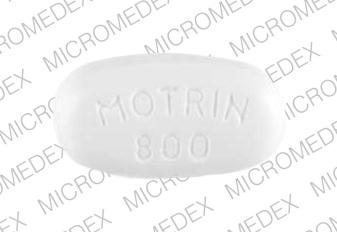Motrin Dosage
Generic name: IBUPROFEN 50mg in 1.25mL
Dosage form: oral suspension
Drug class: Nonsteroidal anti-inflammatory drugs
Medically reviewed by Drugs.com. Last updated on Jan 16, 2025.
- this product does not contain directions or complete warnings for adult use
- do not give more than directed
- shake well before using
- find right dose on chart below. If possible, use weight to dose; otherwise use age.
- mL = milliliter
- measure with the dosing device provided. Do not use with any other device.
- dispense liquid slowly into the child's mouth, toward the inner cheek
- if needed, repeat dose every 6-8 hours
- do not use more than 4 times a day
| Weight (lb) | Age (mos) | Dose (mL) |
|---|---|---|
| under 6 mos | ask a doctor | |
| 12-17 lbs | 6-11 mos | 1.25 mL |
| 18-23 lbs | 12-23 mos | 1.875 mL |
Frequently asked questions
- What's the best medicine for sore throat?
- Motrin vs Advil: What's the difference?
- Can you take Ibuprofen if you have COVID-19 (coronavirus)?
- Naproxen vs ibuprofen: What's the difference?
- Can you take ibuprofen on an empty stomach?
- Can you take expired ibuprofen?
- What's the difference between aspirin and ibuprofen?
- Meloxicam vs Ibuprofen: What's the difference?
- Can You Take Tramadol with Acetaminophen, Ibuprofen, or Aspirin?
More about Motrin (ibuprofen)
- Check interactions
- Compare alternatives
- Reviews (16)
- Drug images
- Latest FDA alerts (14)
- Side effects
- During pregnancy
- Support group
- Drug class: Nonsteroidal anti-inflammatory drugs
- Breastfeeding
Patient resources
Other brands
Advil, IBU, A-G Profen, Addaprin, ... +15 more
Professional resources
Other brands
Advil, IBU, Advil Liqui-Gels, Advil Children's, ... +5 more
Other formulations
Related treatment guides
See also:
Further information
Always consult your healthcare provider to ensure the information displayed on this page applies to your personal circumstances.


